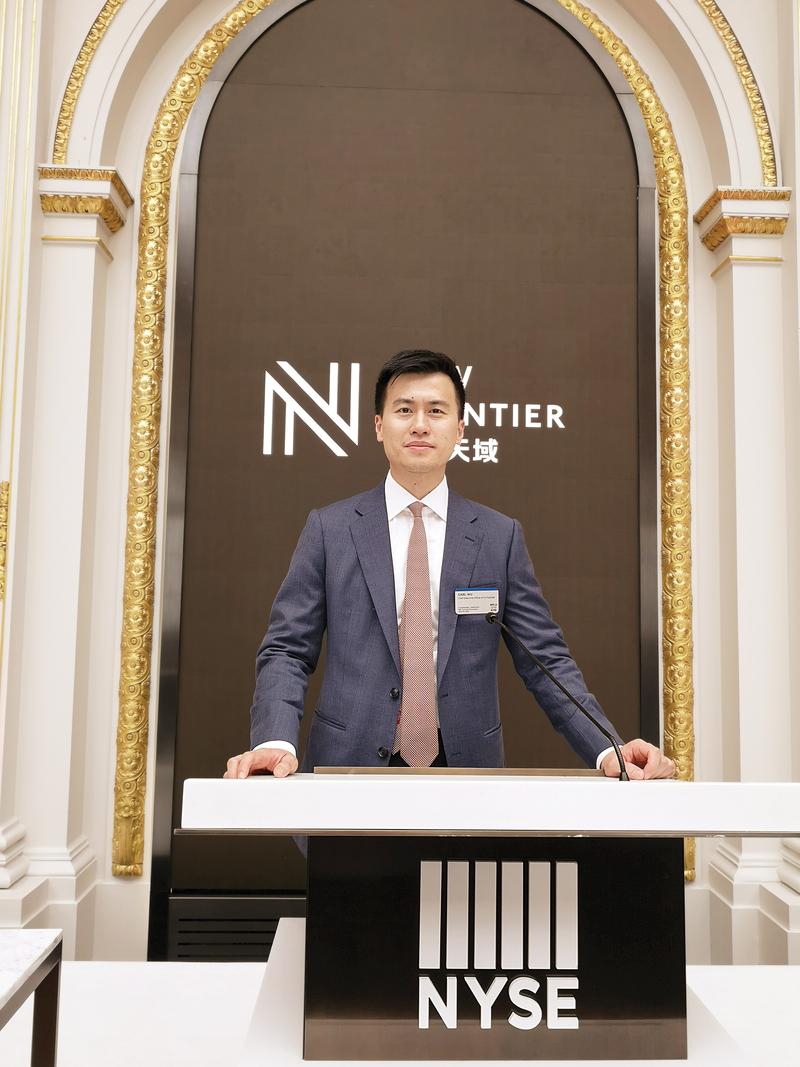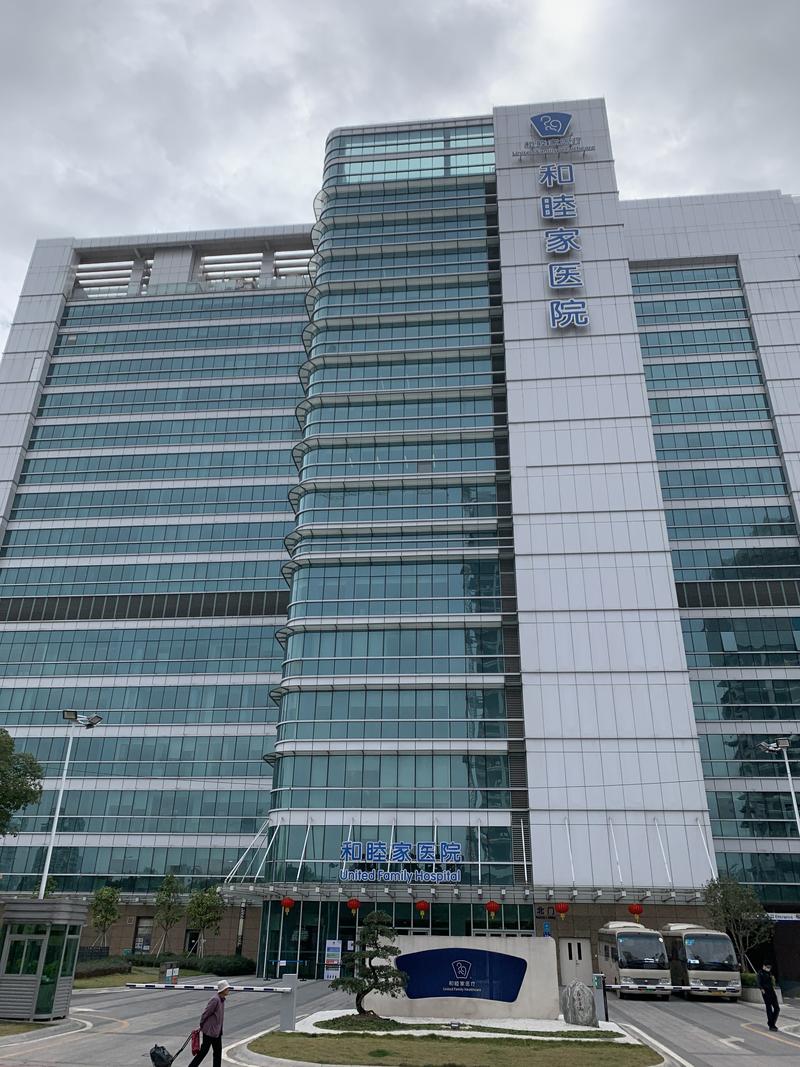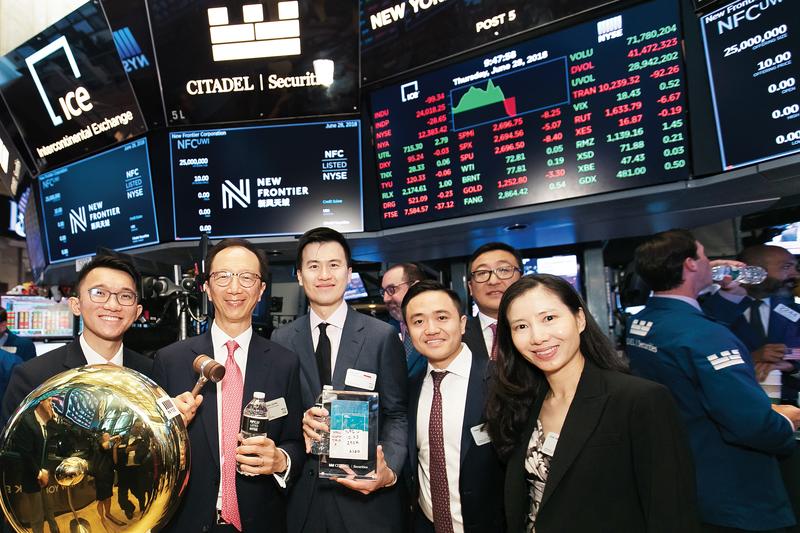Investor-turned-entrepreneur Carl Wu is rising to the occasion with his vision to take China’s healthcare business to new heights. He believes his goal is backed by two key factors — the nation’s quest for quality healthcare as the population ages, as well as the opportunity to ride on its growing economy. He Shusi reports from Hong Kong.
 This undated photo shows Carl Wu, co-founder and CEO of New Frontier Group. (PHOTO PROVIDED TO CHINA DAILY)
This undated photo shows Carl Wu, co-founder and CEO of New Frontier Group. (PHOTO PROVIDED TO CHINA DAILY)
Hong Kong entrepreneur Carl Wu, who co-founded a leading investment group, is a man on a mission.
He has high stakes in China’s private healthcare industry, driven by the nation’s relentless pursuit of quality medical services as COVID-19 bears down on an overwhelmed public health system. He listens to what the market says.
Wu, in the prime of his career and based in the special administrative region, is a co-founder and chief executive officer of New Frontier Group which has tied its fortunes to several healthcare, education, and internet groups across the Chinese mainland. New Frontier recently acquired United Family Healthcare — one of the country’s largest premium private healthcare operators.
New Frontier has already sunk more than HK$15 billion (US$1.9 billion) into the mainland’s healthcare sector in the past three years, with the mega Guangdong-Hong Kong-Macao Greater Bay Area — destined to be the region’s hub for premium healthcare services as medical travel mushrooms — absorbing more than 4 billion yuan (US$598.6 million) of the splash.
ALSO READ: New Frontier Health plans HK secondary listing in 2021
We believe China’s public healthcare system is rather strong. But, it can’t meet all of the market’s needs as some patients are in dire need of personalized medical services. This is where we come in.
Carl Wu, a co-founder and chief executive officer of New Frontier Group
United Family Healthcare currently has nine hospitals under its umbrella on the mainland, including seven already in service and a soon-to-be-launched general hospital in the heart of Shenzhen. Wu is leveraging the Bay Area’s growing momentum to provide premium medical services to an increasingly affluent client base, as well as a rapidly aging region that’s home to over 70 million residents.
Before joining the healthcare and internet entrepreneur ranks, Wu was involved in the world of capital for nearly 11 years, rising from the ranks to become one of the youngest managing directors at New York-based Blackstone Group, the world’s top investment firm. During his time with the financial services titan, he was responsible for executing some of the group’s key investment projects in China.
Taking the plunge into the healthcare domain, he saw it fitting to answer the call from China’s graying population, coupled with the pent-up pressure for a sound public healthcare system.
“We believe China’s public healthcare system is rather strong. But, it can’t meet all of the market’s needs as some patients are in dire need of personalized medical services. This is where we come in,” says Wu.
As the size of the elderly population continues its upward swing — climbing by more than 10 million annually — their medical bills have gone up nearly eight-fold, compared with those for young people. “We want to offer the sort of services the public health system can’t provide so as to back up the network,” Wu explains.
The list includes consumer medical services, such as dermatology, plastic surgery and gynecology, as well as the use of innovative drugs and treatment.
When the coronavirus crisis gripped Beijing’s Xinfadi wholesale food market in June this year, medical teams from Beijing United Family Hospital helped to collect more than 40,000 samples from the capital city’s Chaoyang district.
United Family Healthcare is also upbeat about its rehabilitation and home healthcare services, says Wu, confident they’ll carry the banner in the future healthcare industry.
According to Wu, a patient would sometimes stay at a public hospital until full recovery, meaning public hospital beds are taken up for long periods, especially those in first-class wards.
The picture, however, can be changed by transferring patients who are recovering to a rehabilitation hospital that provides associated services at lower costs.
For instance, a patient might need to spend up to three days in a public hospital for orthopedic surgery. After a therapeutic session, a rehabilitation hospital would be a better choice, says Wu.
In elderly care, Wu says allowing the elderly to spend their later years in the community is more acceptable to Chinese people from a cultural point of view. In this respect, the volume of New Frontier’s door-to-door services for the elderly, particularly in Shanghai, is over 15,000 times a day on average.
Bay Area integration
Based in Hong Kong, New Frontier has some of the city’s most prominent medical experts as advisers or directors, including former Hospital Authority chairman Edward Leong Che-hung, Chief Executive of the University of Hong Kong-Shenzhen Hospital Lo Chung-mau and Chair of the Infectious Diseases Unit of the Department of Microbiology at the University of Hong Kong, Yuen Kwok-yung.
The elite setup will help bring Hong Kong’s experience in hospital management, patient services and innovative therapy to the group’s two hospitals in the Bay Area — the United Family hospitals in Guangzhou and Shenzhen. The latter is expected to open in the third quarter of next year.
READ MORE: Crossing the boundary for picture of health
Under Leong’s leadership, the group has lured experienced Hong Kong medical staff to join United Family Hospital in Shenzhen. He also helps integrate Hong Kong’s experience with Shenzhen’s medical practices.
“We hope the hospital can give full play to the synergistic effects of the integration of Guangdong, Hong Kong and Macao in the Bay Area development,” says Wu.
 This undated photo shows the Guangzhou United Family Hospital that opened in 2018. (PHOTO PROVIDED TO CHINA DAILY)
This undated photo shows the Guangzhou United Family Hospital that opened in 2018. (PHOTO PROVIDED TO CHINA DAILY)
The company has invested 3 billion yuan to build the 64,000-square-meter facility in Shenzhen, located next to the Futian high-speed rail station linking Hong Kong and Guangdong. It will be the group’s largest private hospital on the mainland upon completion.
The new facility in the Bay Area’s innovation and technology center will enjoy a higher status than other United Family hospitals, with a focus on the development of cutting-edge medical procedures, such as minimally invasive surgery with the application of da Vinci Surgical System — the latest robotic surgery approach.
“We believe that in future, hospitals won’t require as many beds with such a higher turnover rate,” says Wu. “With the application of robotics, major surgeries can be turned into a minor operation, and patients can leave the hospital the same day.”
Innovation will also be deployed in the treatment of tumor and cardiovascular diseases, and the use of new drugs. The company will make full use of the development of the Bay Area, which permits the use of Hong Kong-registered drugs and common medical devices in designated Hong Kong-owned healthcare institutions in the region, Wu says.
READ MORE: Niche medical services becoming popular with high-end consumers
New Frontier will step up cooperation with innovative enterprises in Shenzhen to promote the hospital’s innovation process, he says.
Strong market demand
Impacted by the COVID-19 outbreak, New Frontier Health — New Frontier Group’s subsidiary after acquiring United Family Healthcare — saw its revenue slip 12.6 percent to 548.9 million yuan in the second quarter of 2020, compared with the same period last year. However, this was still up 27.4 percent from the prior period as business continued to recover.
The group’s net loss fell to 79.3 million yuan in the second quarter of this year — from 168.6 million yuan in the previous quarter.
With the pandemic having eased since April, the company has seen a strong recovery in the demand for premium healthcare. Its second-quarter financial results released in late August showed promising development of the Guangzhou United Family Hospital.
From May this year — the 21st month since the Guangzhou hospital began operation — it has made ends meet and recorded an EBITDA (earnings before interest, taxes, depreciation and amortization) gain for three consecutive months.
Despite the public health crisis, the rebound in New Frontier’s performance in the second quarter reflected patients’ trust and recognition. It sees a continuous increase in revenue for the second half, the group said in a press release.
In the long term, the company is brimming with confidence in China’s healthcare industry, says Wu. Although the country is seeing ups and downs, he believes opportunities abound with crises.
US-listed New Frontier Health plans to go for a secondary listing in Hong Kong as early as next year although there’s no timetable as yet.
“Our group’s business is mainly in China. We think that to return to Hong Kong SAR is suitable for the company’s long-term development.”
Wu lives in Hong Kong but spends most of his time on the mainland. As a young entrepreneur in his 30s, he says Hong Kong’s younger generation ought to grasp the opportunities spawned as China’s economy powers ahead.
There are plenty of opportunities on the mainland when it comes to launching a career or starting a business, Wu stresses.
After all, there’ll be many innovative companies on the mainland with abundant openings for young people in future, notably in Beijing, Shanghai and Shenzhen, he said.
 This undated photo shows Carl Wu (center), CEO of New Frontier Group, and Hong Kong’s former financial secretary Antony Leung Kam-chung (second left) at the New York Stock Exchange in New York. (PHOTO PROVIDED TO CHINA DAILY)
This undated photo shows Carl Wu (center), CEO of New Frontier Group, and Hong Kong’s former financial secretary Antony Leung Kam-chung (second left) at the New York Stock Exchange in New York. (PHOTO PROVIDED TO CHINA DAILY)
Learning the ropes from his mentor
Partners are always crucial in starting a business. In Carl Wu’s entrepreneurial journey, he’s fortunate to have Hong Kong’s former financial secretary Antony Leung Kam-chung to explore with him the blue sea of China’s healthcare sector.
Leung, who was Blackstone Group’s former president for Greater China, was Wu’s leader when the latter worked in the investment group’s private equity department.
“Leung is a veteran investor, banker and a visionary entrepreneur,” recalls Wu, speaking highly of his former mentor’s rich experience in management and leadership in both government and private enterprise.
By mastering in-depth industry knowledge, cutting-edge technology and combining top talents, we continue to improve on the company and promote its development. All this is valuable experience I’ve picked up from Leung (Antony Leung Kam-chung).
Carl Wu
Taking charge of Blackstone’s equity investment unit, Wu learned of great opportunities in China’s healthcare business. He turned to Leung for support and guidance in starting a business in 2016 when Leung had left Blackstone and became chairman and CEO of Hong Kong property giant Nan Fung Group.
READ MORE: Capital moves business to HK’s delight
Leung was quite optimistic about the prospects of healthcare development on the mainland, reminisces Wu. At the same time, he strongly supports young people in starting their own business. “I’m very lucky to work with Leung again and got this new business off the ground.”
Under Leung’s counsel and leadership, New Frontier has created a world-class management and investment team worldwide. “By mastering in-depth industry knowledge, cutting-edge technology and combining top talents, we continue to improve on the company and promote its development. All this is valuable experience I’ve picked up from Leung,” Wu says.
In order to run the investment group in a healthy way, Wu says it’s equally important to keep himself in tiptop physical shape as CEO, particularly when starting a business is a tough and long journey. He works out at least 15 to 30 minutes each day — hitting the gym, running and playing tennis or golf once in a while.
As most of New Frontier Healthcare’s businesses are located on the mainland, Wu stays behind in Shanghai and Beijing during the COVID-19 pandemic. He married Hong Kong actress Janice Man Wing-san late last year. “I’m lucky that my wife and I are working at the same pace and could stay together on the mainland during the pandemic,” he says.
Hailing from Shantou city in Guangdong province, many of Wu’s family members are prominent politicians or businessmen in Hong Kong, Taiwan and on the mainland. He says the family offers him strong support, both mentally and the resources for him to run the business and create further opportunities.
Contact the writer at heshusi@chinadailyhk.com


